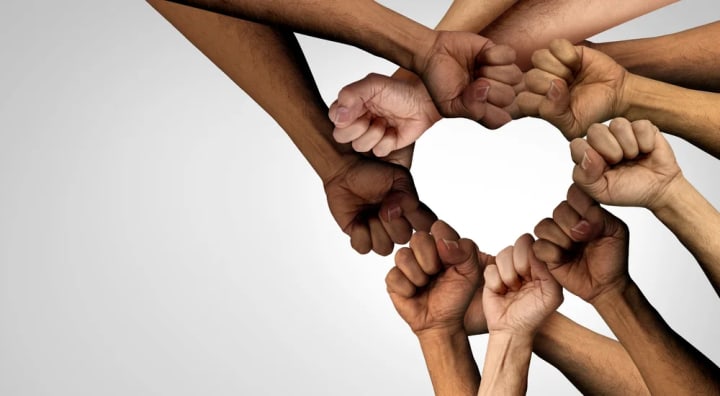SOCIAL JUSTICE
"If it were not for injustice, man would not know justice."

Social justice is a term that is often used to describe the pursuit of equality and fairness in society. It refers to the belief that everyone deserves the same rights and opportunities, regardless of their race, gender, religion, or socioeconomic status. Achieving social justice requires us to address the underlying causes of inequality and work to create a more just and equitable world for all.
The concept of social justice has a long and complex history, dating back to the ancient Greeks and Romans. In the modern era, social justice movements have been driven by individuals and groups who have experienced discrimination and inequality, and who have sought to challenge the status quo.

At its core, social justice is about promoting equality and fighting against oppression and discrimination. It is about ensuring that all individuals have the same opportunities to succeed, regardless of their background or circumstances. This means advocating for policies and practices that address systemic inequalities and ensure that marginalized communities have access to resources and opportunities.
One of the most important aspects of social justice is recognizing and addressing the ways in which systemic oppression and discrimination operate in our society. This can include everything from discriminatory hiring practices and unequal access to education, to police brutality and mass incarceration.
One of the key ways in which social justice is advanced is through activism and advocacy. Social justice activists work to raise awareness about issues of inequality and discrimination, and to push for policy changes that promote equality and justice for all. This can involve everything from organizing protests and marches, to working with lawmakers and policy makers to enact meaningful change.
One of the most important aspects of social justice is intersectionality. This is the recognition that individuals experience oppression and discrimination in different ways based on their various social identities, such as their race, gender, sexuality, and socioeconomic status. Intersectional social justice seeks to address these different forms of oppression and discrimination in a holistic way, recognizing that all forms of inequality are interconnected.

In recent years, social justice movements have gained significant momentum, particularly in the United States. The Black Lives Matter movement, which emerged in response to police violence and systemic racism against Black Americans, has become a powerful force for change. Similarly, the Me Too movement has brought attention to the prevalence of sexual harassment and assault in society, particularly in the workplace.
Social justice is not just about addressing individual instances of discrimination and inequality, but about changing the systems and structures that perpetuate these injustices. This means advocating for policies that promote equity and justice, such as universal healthcare, affordable housing, and criminal justice reform.
At its core, social justice is about creating a world that is fair and just for all. It is about recognizing the dignity and worth of every individual, and working to create a society that values equality and justice above all else. Achieving social justice is not an easy task, but it is a necessary one if we hope to build a more just and equitable world for future generations. By working together, we can make progress towards a world where everyone has the opportunity to succeed, regardless of their background or circumstances.

In conclusion, social justice is a fundamental aspect of creating a fair and equitable society. It involves addressing the underlying causes of inequality and advocating for policies and practices that promote equality and justice for all. Achieving social justice requires us to recognize the ways in which systemic oppression and discrimination operate in our society, and to work towards dismantling these structures.
At the heart of social justice is the recognition of the dignity and worth of every individual, and the belief that everyone deserves the same opportunities to succeed, regardless of their background or circumstances. This means taking a holistic approach to addressing different forms of oppression and discrimination, and working towards systemic change.
While the pursuit of social justice is not easy, it is necessary if we hope to build a better world for future generations. Through activism and advocacy, we can work towards creating a society that values equality and justice above all else, and that recognizes the worth and dignity of every individual. By working together towards this shared goal, we can make progress towards a world that is more just, equitable, and inclusive for all.
About the Creator
Curiosity Ticket
Welcome to curiosity ticket, where we bring you the most fascinating and mind-blowing facts from around the world! Our team of experts is dedicated to delivering the most interesting and educational content, covering a wide range.
Reader insights
Outstanding
Excellent work. Looking forward to reading more!
Top insight
Easy to read and follow
Well-structured & engaging content






Comments (1)
💯